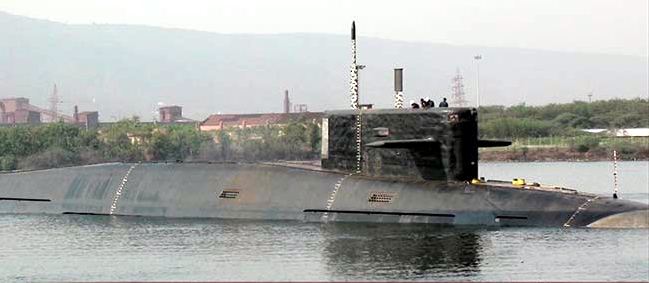SOURCE: IDRW.ORG


The Center for International Strategic Studies (CISS), a prominent Pakistani think tank, has called on the Pakistani government to oppose the recent approval by the U.S. Department of Energy (DOE) allowing Holtec International to transfer Small Modular Reactor (SMR) technology to India. The decision, announced in early 2025, enables India to design and construct advanced SMRs, raising concerns in Islamabad about the potential military implications, particularly for India’s nuclear submarine programs.
SMRs, compact nuclear reactors with a capacity of up to 300 MW, are designed for diverse applications, including electricity generation, industrial use, and marine propulsion. Their smaller size and modular construction make them ideal for environments requiring high efficiency and limited space, such as submarines. The CISS argues that this technology transfer could significantly enhance India’s ability to develop more efficient reactors for its Strategic Submarine Ballistic Nuclear (SSBN) and Nuclear-Powered Attack Submarine (SSN) programs, thereby strengthening its naval deterrence and power projection in the Indian Ocean Region (IOR).
According to the CISS, the Holtec SMR-300, a pressurized light-water reactor, could be adapted for India’s next-generation submarines, offering greater endurance and stealth compared to the indigenous 190 MW pressurized water reactors (PWRs) currently powering INS Arihant and INS Arighat. The think tank warns that such advancements could tilt the regional balance of power, given India’s plans to build six SSNs and additional SSBNs under its Advanced Technology Vessel (ATV) project. Beyond military applications, SMRs could also be repurposed for civilian submarines, supporting India’s ambitions in deep-sea exploration and resource extraction.
The CISS’s concerns stem from the strategic implications of India’s growing nuclear capabilities, which it views as a direct challenge to Pakistan’s security. In a statement, the think tank highlighted that SMRs’ scalability and flexibility could accelerate India’s nuclear triad modernization, particularly at sea, where Pakistan’s naval assets are limited. It urged Pakistan to raise the issue at international forums like the International Atomic Energy Agency (IAEA), arguing that the transfer risks escalating an arms race in South Asia. The think tank also pointed to the precedent set by the 2008 U.S.-India nuclear deal, which granted India access to civilian nuclear technology without Nuclear Non-Proliferation Treaty (NPT) membership, as evidence of preferential treatment that could destabilize the region.
However, the CISS’s position overlooks certain realities. India’s SMR program, while ambitious, is primarily aimed at civilian energy needs, with plans to deploy up to 50 reactors by 2040 to support industrial decarbonization and energy security. The Holtec collaboration focuses on repurposing coal plant sites, not direct military use, and is subject to IAEA safeguards to prevent proliferation. Adapting SMRs for submarines would require significant reengineering, a process that could take years, given the stringent safety and size constraints of naval reactors.
Pakistan itself has explored SMRs for energy security, with proposals to leverage Chinese support through the China-Pakistan Economic Corridor (CPEC). Yet, the CISS’s call for opposition reflects broader anxieties about India’s technological edge, fueled by partnerships with global players like the U.S., France, and Russia. Posts on X echo this sentiment, with some Pakistani users framing the transfer as a “double standard” in non-proliferation norms, given Pakistan’s exclusion from similar deals.
NOTE : Article cannot be reproduced without written permission of idrw.org in any form even for YouTube Videos to avoid Copy right strikes. Websites doing illegal reproductions will get DMCA and Legal Notices.